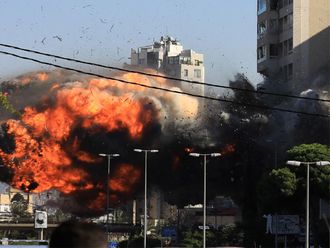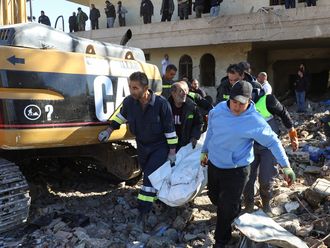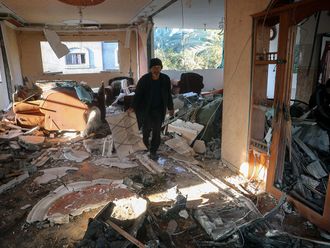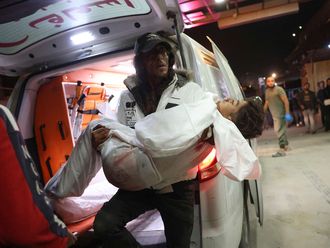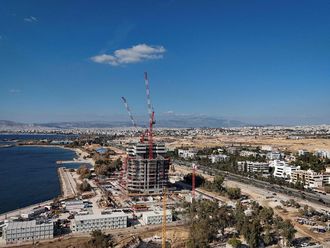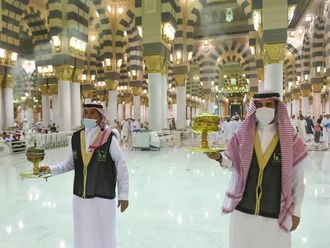London: Recent signs of cracks in the Syrian leadership have taken Iran by surprise according to analysts speaking as Iran was hosting a crisis meeting on Syria.
“Iran is trying to show strength and regional presence, but if they were going to make a big play why not do it at the Non-Aligned Movement summit [taking place in Tehran in late August]?” said Scott Lucas of the EA Worldview news website that specialises in covering Iran. “They seem to be so jittery about Syria, they couldn’t afford to wait,” he added.
Several nations were attending a meeting on Thursday in Tehran to discuss the conflict, but no country who has called for an end to the Bashar Al Assad regime was in attendance.
Russia — which along with Iran has strongly supported Assad since the crisis erupted 17 months ago — has said it will attend the meeting at ambassadorial level but it was unclear which other key players would be present.
Iranian media has reported that China would also be present, along with at least 15 others, including Iraq, Algeria, Tajikistan, Venezuela, Pakistan, India and several members of the Arab League.
Along with Russia and China, Iran has strongly supported Al Assad, whose forces have launched crushing operations against anti-government protesters and armed opposition groups since the crisis erupted 17 months ago.
The Islamic republic has resisted an agreement on Syria that requires Assad to quit as part of any political transition. There is no sign that Tehran is ready to adopt a new approach, despite setbacks for Al Assad including the defection this week of his prime minister.
Iran’s Shiite rulers have accused Western and Arab nations — specifically Saudi Arabia — of fomenting terrorism in Syria by arming opposition groups.
In turn, Syria’s mostly Sunni Muslim rebels accuse Tehran of sending military personnel to Syria and of providing light arms, as well as tactical and communications expertise to Syrian government forces.
The crisis has soured Iran’s relations with neighbouring Turkey which has hosted opposition meetings, extended assistance to Syrian refugees and demanded Al Assad leave office.
“Iran wants to co-ordinate efforts among countries that don’t accept the Western and Saudi approach to Syria,” said Mohammad Marandi of Tehran University. “It’s a counter-force to the so-called Friends of Syria gathering.”
Iranian involvement in the crisis has been complicated by the seizure by rebels of 48 Iranians in Syria on Saturday on suspicion of being military personnel.
Tehran has said they were pilgrims, but acknowledged that some of the men were retired soldiers or Revolutionary Guards.
Iranian officials have engaged in intensive diplomatic efforts in the region this week.
On Tuesday, while Foreign Minister Ali Akbar Salehi was in Ankara trying to maintain relations, the head of Iran’s Supreme National Security Council Saeed Jalili was in Damascus to reassure Assad of Tehran’s support.
“They’re in chaos in terms of the bureaucracy. There have been lots of statements but no-one’s co-ordinating it,” said EA Worldview’s Scott Lucas.
The meeting comes just days before a meeting of the Organisation of Islamic Cooperation set to focus on Syria. In recent days Iran has warned the Muslim world of the threat posed to it by the United States.
“In the new plan that the Americans have provided for the Middle East, they have foreseen changes for all countries,” Iran’s state news agency quoted Iranian President Mahmoud Ahmadinejad as saying on Wednesday.
“I am certain they have plans for changes in Saudi Arabia as well... they do not want Muslim countries to have power and in opposition we must stand together more than before,” he added


